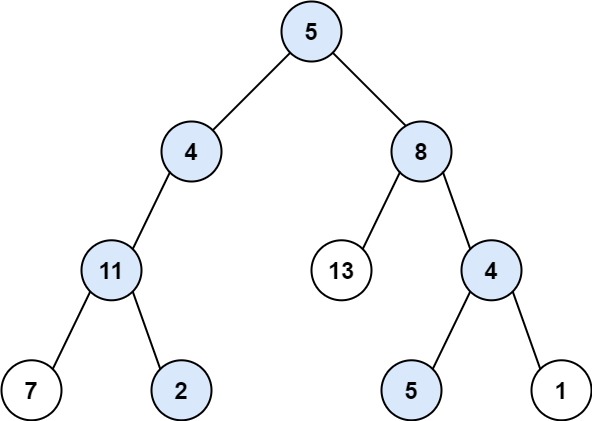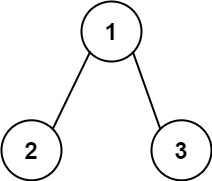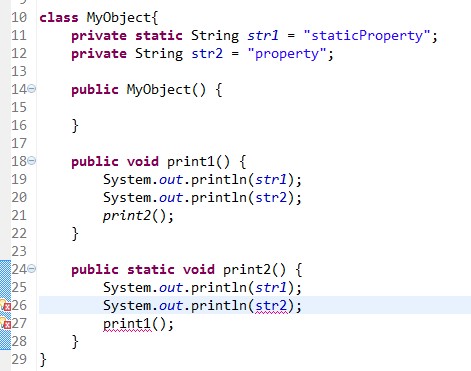LeetCode - Medium - 113. Path Sum II
Topic
- Tree
- Depth-first Search
Description
https://leetcode.com/problems/path-sum-ii/
Given the root of a binary tree and an integer targetSum, return all root-to-leaf paths where each path’s sum equals targetSum.
A leaf is a node with no children.
Example 1:

Input: root = [5,4,8,11,null,13,4,7,2,null,null,5,1], targetSum = 22Output: [[5,4,11,2],[5,8,4,5]]
Example 2:

Input: root = [1,2,3], targetSum = 5Output: []
Example 3:
Input: root = [1,2], targetSum = 0Output: []
Constraints:
- The number of nodes in the tree is in the range
[0, 5000]. -1000 <= Node.val <= 1000-1000 <= targetSum <= 1000
Analysis
方法一:递归法
方法二:迭代法
Submission
import java.util.ArrayList;import java.util.LinkedList;import java.util.List;import com.lun.util.BinaryTree.TreeNode;public class PathSumII {//方法一:递归法public List<List<Integer>> pathSum(TreeNode root, int targetSum) {List<List<Integer>> result = new ArrayList<>();pathSum(root, 0, targetSum, new ArrayList<>(), result);return result;}private void pathSum(TreeNode node, int sum, int targetSum, List<Integer> path, List<List<Integer>> result) {if(node == null) return;path.add(node.val);sum += node.val;if(node.left == null && node.right == null && sum == targetSum)result.add(new ArrayList<>(path));pathSum(node.left, sum, targetSum, path, result);pathSum(node.right, sum, targetSum, path, result);path.remove(path.size() - 1);}//方法二:迭代法@SuppressWarnings("unchecked")public List<List<Integer>> pathSum2(TreeNode root, int targetSum) {List<List<Integer>> result = new ArrayList<>();if(root == null) return result;LinkedList<Object[]> stack = new LinkedList<>();stack.push(new Object[] { root, 0, new ArrayList<>()});while(!stack.isEmpty()) {Object[] arr = stack.pop();TreeNode node = (TreeNode)arr[0];int sum = (int)arr[1];List<Integer> path = (List<Integer>)arr[2];path.add(node.val);sum += node.val;if(node.left == null && node.right == null) {if(sum == targetSum)result.add(path);}else if(node.left != null && node.right == null) {stack.push(new Object[] { node.left, sum, path});}else if(node.left == null && node.right != null) {stack.push(new Object[] { node.right, sum, path});}else {stack.push(new Object[] { node.right, sum, new ArrayList<>(path)});stack.push(new Object[] { node.left, sum, path});}}return result;}}
Test
import static org.junit.Assert.*;import java.util.Arrays;import org.hamcrest.collection.IsEmptyCollection;import org.hamcrest.collection.IsIterableContainingInAnyOrder;import org.junit.Test;import com.lun.util.BinaryTree;import com.lun.util.BinaryTree.TreeNode;public class PathSumIITest {@SuppressWarnings("unchecked")@Testpublic void test() {PathSumII obj = new PathSumII();TreeNode root1 = BinaryTree.integers2BinaryTree(5,4,8,11,null,13,4,7,2,null,null,5,1);assertThat(obj.pathSum(root1, 22), //IsIterableContainingInAnyOrder.containsInAnyOrder(Arrays.asList(5,4,11,2), Arrays.asList(5,8,4,5)));TreeNode root2 = BinaryTree.integers2BinaryTree(1, 2, 3);assertThat(obj.pathSum(root2, 5), IsEmptyCollection.empty());TreeNode root3 = BinaryTree.integers2BinaryTree(1, 2);assertThat(obj.pathSum(root3, 0), IsEmptyCollection.empty());}@Test@SuppressWarnings("unchecked")public void test2() {PathSumII obj = new PathSumII();TreeNode root1 = BinaryTree.integers2BinaryTree(5,4,8,11,null,13,4,7,2,null,null,5,1);assertThat(obj.pathSum2(root1, 22), //IsIterableContainingInAnyOrder.containsInAnyOrder(Arrays.asList(5,4,11,2), Arrays.asList(5,8,4,5)));TreeNode root2 = BinaryTree.integers2BinaryTree(1, 2, 3);assertThat(obj.pathSum2(root2, 5), IsEmptyCollection.empty());TreeNode root3 = BinaryTree.integers2BinaryTree(1, 2);assertThat(obj.pathSum2(root3, 0), IsEmptyCollection.empty());}}


































还没有评论,来说两句吧...